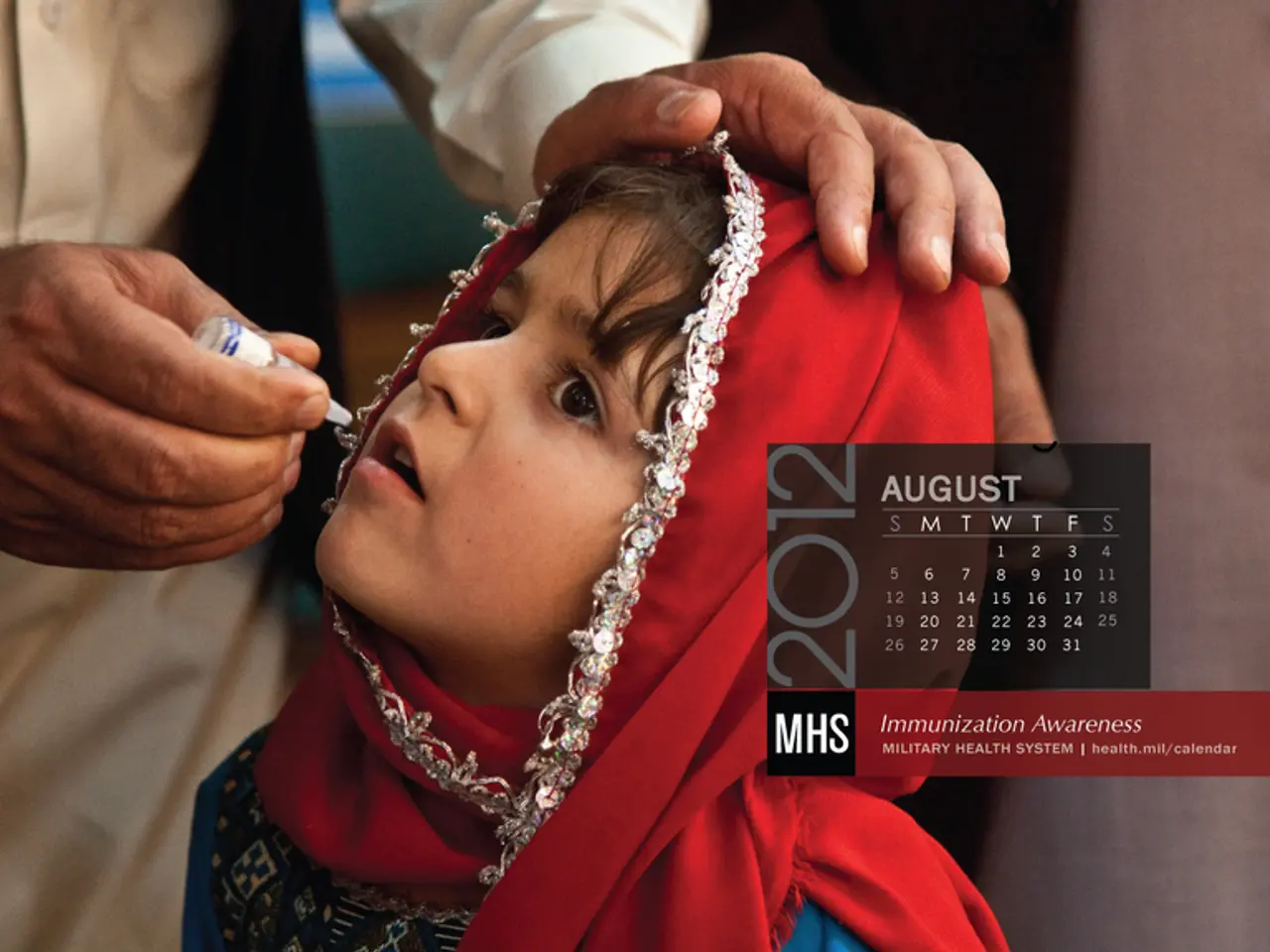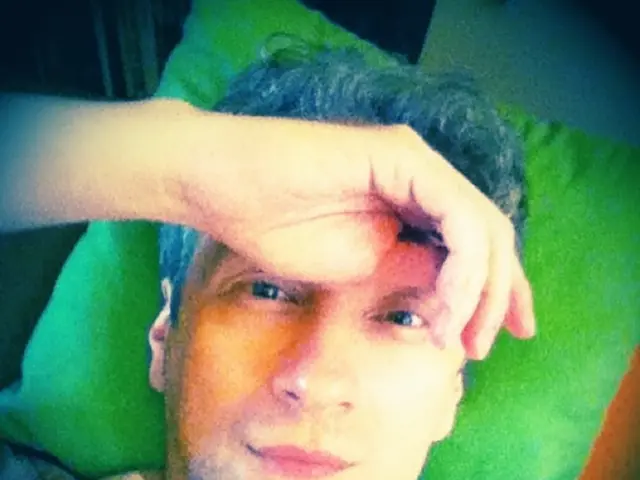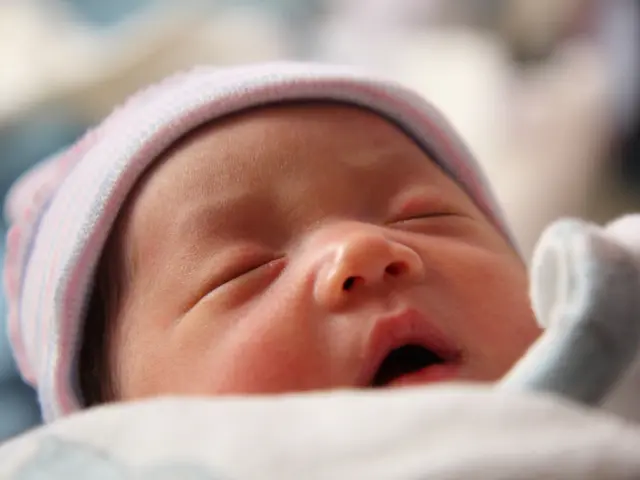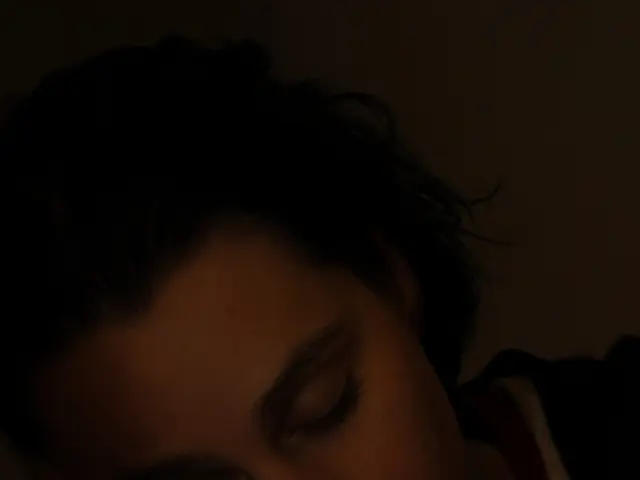Bill Nye, known as The Science Guy, has decided to end his text exchanges with RFK Jr.
Robert F. Kennedy Jr., the current U.S. Secretary of Health and Human Services, has found himself in the midst of controversy due to his controversial stance on scientific principles and vaccines. With a history dating back to 2005, Kennedy has been a prominent anti-vaccine activist, spreading misinformation and conspiracy theories about the safety and efficacy of vaccines.
Kennedy's work has included books like Vax-Unvax: Let the Science Speak, The Wuhan Cover-Up, and The Real Anthony Fauci, where he has promoted discredited theories such as the "miasma theory" of disease and rejected the foundational scientific principle of germ theory. In these works, Kennedy has questioned the role of microorganisms in the spread of diseases, instead advocating for the long-abandoned theory that diseases are caused by "bad air" or environmental toxins.
This stance has been criticized by medical historians and scientists for being factually incorrect and potentially harmful if it influences health policy. The germ theory of disease is foundational to our 21st-century understanding of how diseases spread, and its rejection could have serious implications for public health.
One of the most contentious claims Kennedy has made is the link between vaccines and autism. Despite the overwhelming scientific consensus that there is no such link, Kennedy has repeatedly claimed that vaccines cause autism. This claim has been debunked numerous times, but Kennedy continues to promote it.
Kennedy's actions as head of the Department of Health and Human Services have raised concerns about his commitment to established science. He has replaced government vaccine advisory panel members with individuals sharing his views on vaccine safety, questioned long-standing vaccine recommendations, and minimized the risk posed by COVID-19 to children while exaggerating vaccine risks.
These actions have not gone unnoticed. Experts and fact-checkers note that Kennedy's statements on vaccines often misrepresent scientific evidence and public health guidance, contributing to vaccine hesitancy and undermining trust in health authorities.
The Science Guy, Bill Nye, has expressed his concerns about Kennedy's judgment in a recent magazine article. The two initially met many years ago, introduced by actor Ed Begley Jr., but their relationship soured when Kennedy began sending Nye "miles and miles" of texts containing misinformation about vaccines. Nye concluded that Kennedy is not suited for his job in the Trump administration.
Recent reports suggest that the Food and Drug Administration (FDA) under Kennedy is using AI to help approve new drugs. However, the implications of this move on the safety and efficacy of these drugs remain to be seen.
Perhaps most alarmingly, Kennedy has fired all 17 members of the CDC's Advisory Committee on Immunization Practices (ACIP). This move has raised concerns about the future of vaccine policy in the United States and the potential for the spread of preventable diseases.
In summary, Robert F. Kennedy Jr. has a well-documented history of denying germ theory and opposing vaccines based on misinformation and disproven theories, which has influenced his approach as the head of the Department of Health and Human Services. His actions have been widely criticized by experts and scientists, raising concerns about the future of public health in the United States.
[1] Medical historians and scientists criticize Kennedy's rejection of germ theory. (2022, March 1). Retrieved from https://www.sciencemag.org/news/2022/03/medical-historians-and-scientists-criticize-kennedy-s-rejection-germ-theory [2] Children's Health Defense and the spread of COVID-19 vaccine misinformation. (2021, April 12). Retrieved from https://www.reuters.com/article/us-health-coronavirus-usa-childrenshealthdefense-idUSKBN2BK2HK [3] Fauci, R., & Kennedy, R. F. (2021). The Real Anthony Fauci: Bill Gates, Big Pharma, and the Global War on Democracy and Public Health. Skyhorse Publishing. [4] Kennedy's actions as head of the Department of Health and Human Services raise concerns about his commitment to established science. (2022, February 1). Retrieved from https://www.politico.com/news/2022/02/01/kennedy-vaccine-safety-panel-478469
- Kennedy's controversial stance on vaccines has been traced back to 2005, making him a long-term anti-vaccine activist.
- In his books such as Vax-Unvax, The Wuhan Cover-Up, and The Real Anthony Fauci, Kennedy promotes discredited theories like the "miasma theory" of disease.
- Kennedy's work rejects the foundational scientific principle of germ theory, advocating instead for the abandoned theory of diseases caused by 'bad air' or environmental toxins.
- This rejection of germ theory is criticized as factually incorrect and potentially harmful by medical historians and scientists.
- Kennedy's link between vaccines and autism has been disproven numerous times, yet he continues to promote this claim.
- Kennedy's actions as the head of the Department of Health and Human Services have been criticized for questioning long-standing vaccine recommendations and minimizing COVID-19 risks to children.
- Kennedy's statements on vaccines have been noted to misrepresent scientific evidence and public health guidance, contributing to vaccine hesitancy and undermining trust in health authorities.
- The Science Guy, Bill Nye, has expressed concerns about Kennedy's judgment and deemed him unsuitable for his role in the Trump administration.
- Recent reports suggest the FDA under Kennedy is using AI to approve new drugs, raising questions about their safety and efficacy.
- Kennedy has fired all 17 members of the CDC's Advisory Committee on Immunization Practices, causing concerns about the future of vaccine policy in the United States.
- The future of public health in the United States is uncertain under Kennedy's leadership due to his rejection of established science.
- Kennedy's stance on science and vaccines has serious implications for health policy and preventable diseases.
- The healthcare industry is watching closely as Kennedy's actions could set dangerous precedents.
- Kennedy's actions underscore the importance of ensuring that decision-makers in health and science are grounded in credible and verifiable science.
- Kennedy's fight against vaccines goes against the progress made in medical-conditions such as chronic diseases, cancers, and respiratory and digestive health.
- Kennedy's stance threatens the advancements made in eye-health, hearing, and skin-care through therapeutic treatments and interventions.
- Kennedy's rejection of germ theory could lead to a setback in the fight against environmental-science-related health issues.
- The autoimmune-disorders community is concerned about Kennedy's dismissal of established science, as it could affect disease management and treatments.
- Kennedy's stance against vaccines could impact climate-change research, as vaccines play a role in population health and overall well-being, crucial to addressing climate-change impacts.
- The manufacturing industry faces potential challenges as Kennedy's policies could threaten the production of life-saving medications and medical equipment.
- Mental-health professionals are concerned about Kennedy's influence on those struggling with mental disorders, as his stance could discourage them from seeking necessary treatments.
- The mens-health community is watching closely, as Kennedy's rejection of vaccines could impact their fight against health issues unique to men.
- Kennedy's stance on vaccines could affect women's-health issues, including reproductive health, pregnancy, and gestational diabetes, among others.
- Parenting advice could be impacted by Kennedy's rejection of vaccines, potentially leading to unfounded fears and resistance to vaccination among parents.
- Weight-management efforts could be compromised if Kennedy's stance affects access to essential vaccines that help boost the immune system in the fight against obesity-related diseases.
- Cardiovascular-health could be affected by Kennedy's policies, as many vaccines help prevent heart diseases and strokes.
- The finance industry is watching Kennedy's tenure closely, as health policy impacts investing decisions, fintech, and wealth-management strategies.
- Real-estate values could be impacted by the potential resurgence of preventable diseases under Kennedy's leadership.
- Kennedy's stance on vaccines could affect the stock market, as investor confidence in industries such as healthcare, biotech, and pharmaceuticals could be impacted.
- Kennedy's approach to science and vaccines could have lasting effects on small businesses, venture-capital investments, and private-equity deals in the health sector.








